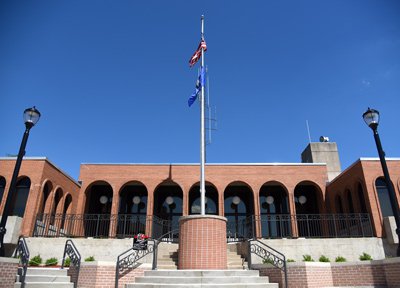MONROE — A well-known corporation has filed a lawsuit against the city to recover funds it claims the city took illegitimately through property taxes.
Walmart, the giant retailer based in Bentonville, Arkansas, filed a suit in Green County Circuit Court against Monroe at the end of July. Lawyers for the company are asking for a money judgment to recover nearly $24,000, plus statutory interest, that they claim would be “excessive real estate taxes due to be imposed on Walmart.”
City Treasurer Stephanie Bachim was served an affidavit in the suit Aug. 2.
It began with an assessment of the 26 acres where the Monroe store sits. Walmart representatives claim that the 2017 value of the parcel is no more than $8.482 million. This means the assessment should not exceed $7.8 million, lawyers Russell James Karnes and Christopher Lee Strohbehn of the Milwaukee-based Gimbel, Reilly, Guerin & Brown firm argue.
Once an assessment was set by the city at $8.631 million, Walmart filed an objection to the amount. Representative Brendan Douylliez appealed to the Monroe Board of Review, which ultimately denied the claim during a meeting June 1, 2017.
Walmart initially requested a waiver of the BOR hearing during the meeting. Douylliez noted at the meeting that the company planned to move forward with legal action at the court level either way, but members of the board denied the request. According to meeting minutes, Douylliez said during the hearing that physical retail buildings are hard to sell if they become vacant and that internet sales have infringed on the profitability of retail sales.
City Assessor Ryan Andersen said during the meeting that the annual assessment level was 92 percent and indicated that according to state instruction, dark store values should not be used. The wording refers to the argument by companies that the total should be based on the sale of previously unsuccessful businesses which were vacant when sold rather than the cost of constructing the building and the business’ income potential.
State lawmakers have created legislation to address the issue of dark store claims in the form of Senate Bill 292, which would prevent assessors from calculating active stores’ property values by comparing them to dark stores.
In the end, BOR determined the assessor presented the most credible evidence and the amount of $8.631 million was fair market value.
Walmart representatives served a claim for excessive assessment which was effectively denied by the city through non-response in early January. City Attorney Dan Bartholf answered the claim filed in the court system Aug. 13 by stating the city denied all claims by Walmart.
A survey by the Wisconsin Policy Forum for the League of Municipalities has found that this type of tax appeal has been increasing steadily since 2015. Officials from 215 communities were surveyed and responded that last year, 79 tax appeals under the dark store claim were filed against their municipalities. According to survey data, that number was 66 in 2015.

